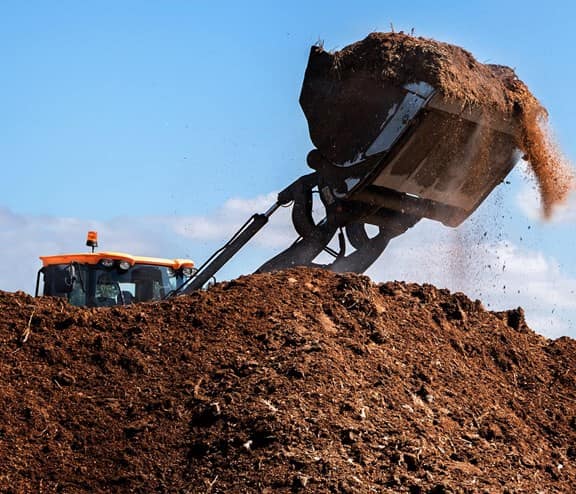
Road sweepings recycling & soil treatment services
Biffa provides a range of compliant and cost effective solutions for the recovery of useful materials from street sweepings and for the decontamination of soils from brownfield sites. Our services improve recycling and reduce waste going to landfill.
Diverting road sweepings and soils from landfill
If you are a large-scale producer of street sweepings, glass residue and gulley suckings, or if you run a brownfield site, then Biffa can help minimise the residues or soils that might otherwise go to landfill. With our innovative street sweepings treatment we can recover 99% of all material taken to our facilities. While at our soil treatment facilities, in partnership with Biogenie, we can decontaminate soil in as little as 8 weeks.
Recovering secondary aggregates for reuse and recycling
Recycled street sweepings
Street sweepings are sifted and washed to segregate sand, stone and glass which are then crushed to form aggregates. If you're a concrete manufacturer or construction company, our recycled aggregates can be used in non-structural building projects, such as foundations for roads. To make sure there’s no cross-contamination and maintain quality, the different aggregates are stored and sold separately at competitive prices, and clearly marked for easy pick-up at our Staffordshire and West Sussex sites.
Reducing decontamination from 12 years to 8 weeks
Together with Biogenie, we offer a full end-to-end service, from technical advice and material testing to treatment and recovery. We offer a quick turnaround to reduce costs, minimise landfill taxes, and lessen the impact on the environment.
Soils and materials accepted for treatment
Our road sweeping and soil treatment facilities
-
Road Sweepings
- Meece, Meece Landfill, Staffordshire, ST15 0QN
- West Sussex, Brookhurst Wood, Langhurstwood Road, Horsham, RH12 4QD
-
Contaminated soils
- Skelton Grange, Pontefract Lane, Newsam Green, Leeds, LS15 9AD
- Meece, Meece Landfill, Staffordshire, ST15 0QN
- Trecatti, Fochriw Road, Pant-y-Waun, Merthyr Tydfil, CF48 4AB
- Redhill, Patteson Court Landfill, Cormongers Lane, Nutfield, RH1 4ER
- Westmill, Ware, Hertfordshire, SG12 0ES